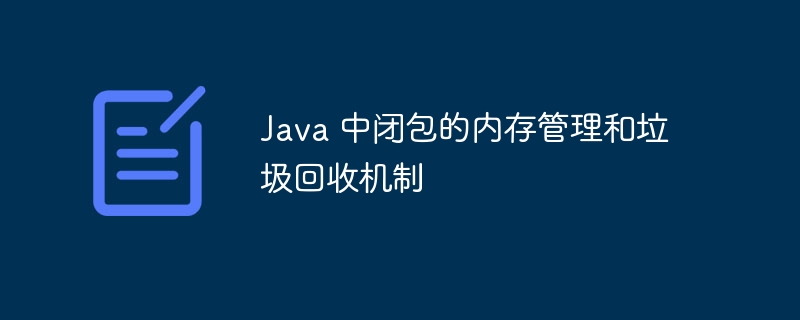
The memory management of closures in Java is affected by the garbage collection mechanism. External variables in a closure are referenced by the closure and cannot be released even if the external object is garbage collected, potentially causing a memory leak. You can avoid this situation by using WeakReference in Java 8 to create a weak reference, thereby releasing the reference to the outer object when it is garbage collected.

A closure is a function that can access objects declared outside the function definition scope variable. In Java, closures are created in anonymous inner classes that reference variables in the outer scope.
Memory management in Java is handled automatically by the garbage collector. The garbage collector releases objects that are no longer used when:
For closures, the garbage collection mechanism has some special considerations:
The following is a Java example with closure:
public class OuterClass {
private int x = 10;
public void createClosure() {
// 创建闭包
Runnable r = () -> System.out.println(x);
}
}In this example, the createClosure method creates A closure that accesses the external variable x. Even if the OuterClass object is garbage collected after the createClosure method returns, the closure still has access to the variable x, which may cause a memory leak.
To avoid this situation, you can use WeakReference introduced in Java 8 to create a weak reference:
public class OuterClass {
private WeakReference<Integer> x;
public void createClosure() {
// 使用弱引用创建闭包
Runnable r = () -> System.out.println(x.get());
}
}In this way, when the OuterClass object is During garbage collection, the weak reference of x will also be released, so it will not cause a memory leak.
The above is the detailed content of Memory management and garbage collection mechanism of closures in Java. For more information, please follow other related articles on the PHP Chinese website!
